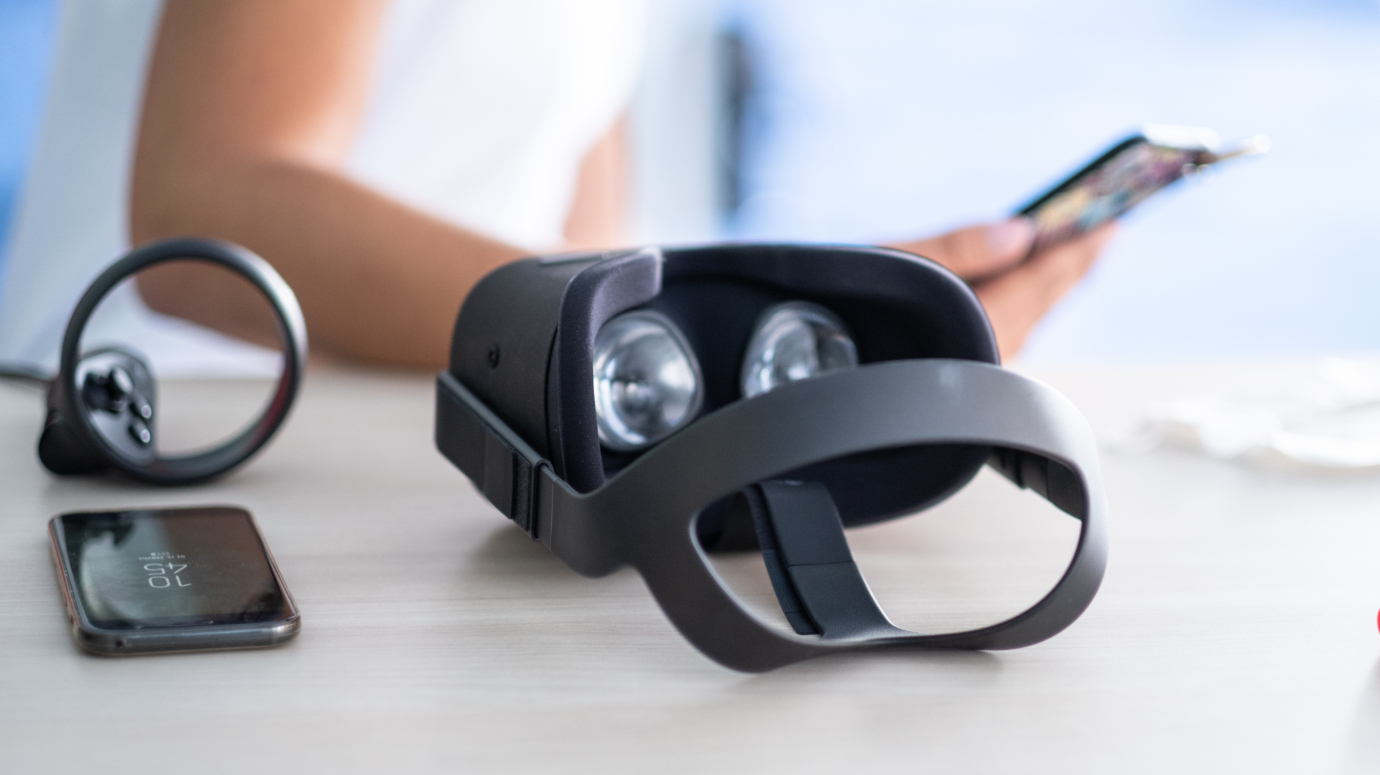Virtual reality is predominantly associated with the gaming industry, but nowadays interesting VR projects can be found even in the business segment. Following this trend can be worthwhile for several reasons. In addition to the substantial marketing potential, innovations in this area might save money, make processes more efficient and add a whole new dimension to how tasks, projects and the company as such is perceived.
We experienced this first hand in Česká spořitelna, a bank from the Erste Group – after a virtual branch, their “tribe Assisted channels” decided to use this 3D model in action and asked us at Cleverlance to help create training for operating the cash registers in VR. This is a historically first virtual reality training in the Česká spořitelna.
 What are the advantages of this new method? The training combines gaming elements (just like Johann Amos Comenius used to say: Learning through play) and the immersion principle, when the students can fully immerse into the subject, it feels like they are trying it out themselves, even though it’s just in virtual reality. Trainers at Česká spořitelna chose this new training format for sections of the course that are historically the most challenging for the students, are hard to explain on a piece of paper, and where passive observing (e.g., on a video) is not enough to automate the process. This part is very important, though. Operating the cash register in a bank is subject to strict ČNB regulations, which is why individual training modules also have higher requirements. Students can for example practice deposits, withdrawals, checking notes, closing or balancing the cash register. The fact that the training takes place in an environment that is identical to the actual environment of Česká spořitelna helps to ingrain individual processes and reduces the error rate of cashiers in real work situations.
What are the advantages of this new method? The training combines gaming elements (just like Johann Amos Comenius used to say: Learning through play) and the immersion principle, when the students can fully immerse into the subject, it feels like they are trying it out themselves, even though it’s just in virtual reality. Trainers at Česká spořitelna chose this new training format for sections of the course that are historically the most challenging for the students, are hard to explain on a piece of paper, and where passive observing (e.g., on a video) is not enough to automate the process. This part is very important, though. Operating the cash register in a bank is subject to strict ČNB regulations, which is why individual training modules also have higher requirements. Students can for example practice deposits, withdrawals, checking notes, closing or balancing the cash register. The fact that the training takes place in an environment that is identical to the actual environment of Česká spořitelna helps to ingrain individual processes and reduces the error rate of cashiers in real work situations.
Česká spořitena uses the app within courses taught by a lecturer, when the students can experience most of the tasks first hand using VR and then repeat these processes until they become ingrained. This can also be done for less frequent scenarios using the “tutorial” module. The testing module then verifies how much the student has learned – the test meets the parameters required by the internal regulations of Česká spořitelna and ČNB. Another great benefit is the remote training function which is planned to be added in the future. Thanks to this, students won’t need to travel to the headquarters in Prague or Brno; all they will need is a pair of VR glasses with updated software. This saves not only money but also time. Lecturers become guides that help students understand the subject and provide a professional framework for the training, but they don’t need to be present during each routine trial, which bring additional significant savings.
The first training sessions took place in June 2020. The interest among ČSAS employee was enormous and the training sessions were booked out almost immediately. And the program is still continuously being developed.
